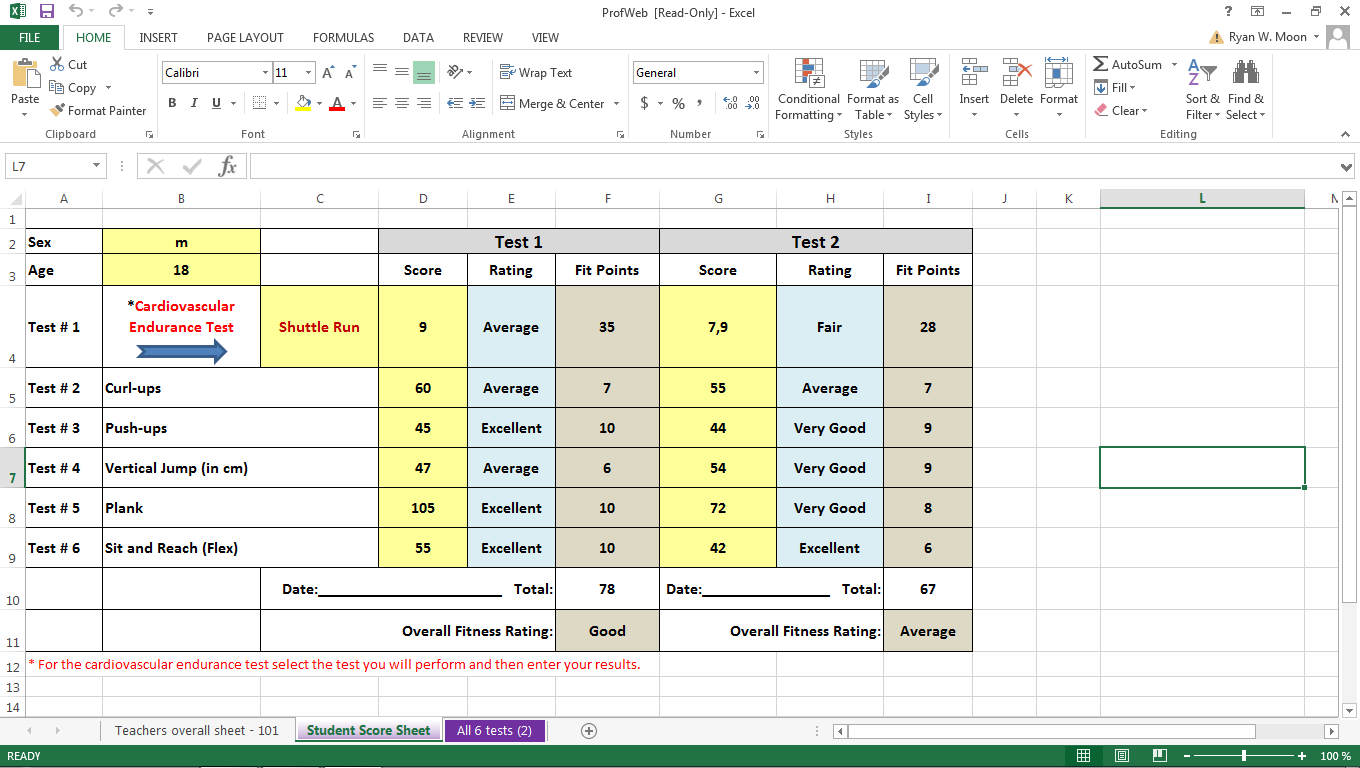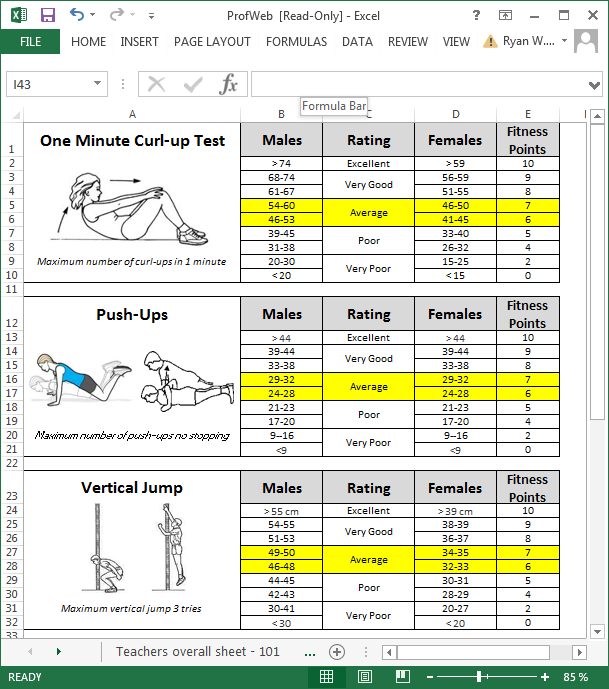Development of an e-Portal to Follow Student Physical Fitness throughout Their College Studies
The General Education component of all DCS/DEC programs includes 3 Physical Education courses. For many years, Physical Education teachers in colleges across the province have tested the physical fitness of students in their classes. Thanks to the financial assistance of the Entente Canada-Québec, and the project leadership of Phys. Ed Teachers Josée Perron and Tony Iachetta at Marianopolis College, the groundwork is under way to create an electronic physical fitness profile portal that students can use across their three courses.
Ms. Perron tells us that the project seeks to take forms and tables that students use for the fitness evaluations and program them for use in a web-based interface. She is currently collecting data and establishing the norms to verify classification for the cohort which began in the fall semester of 2015. The college’s IT service is working on a prototype of the portal which will go live next fall (2016), and the data collected will serve as input to the design.
The project began in 2015-2016 in association with Vanier College and Champlain Regional College (St. Lambert and Lennoxville campuses). Marianopolis, along with these colleges worked together to select a series of fitness tests, given that they have used similar physical fitness evaluations for the past several years. Six well-known tests were selected to create a Fitness Challenge. These tests are used widely in the college network, and have existed for a long time. However, Perron and Iachetta have developed a point system for each of the 6 tests and generated an overall e-fitness profile.

A digital form showing the 6 tests that will be used for the eventual e-Profile on the fitness portal
Currently, Marianopolis is offering first year students the possibility of evaluating their level of physical fitness during their first of three Physical Education courses (101 MQ Physical Activity and Health). A typical fitness test lasts 60 minutes. Students enter their data into a chart that includes the 6 different categories of tests. Once the data entry is complete, an Overall Fitness Rating is calculated. A point system was created to help motivate the students and inspire them to improve their physical fitness during their college studies. They can retake the tests as many times as they like and achieve a higher level of performance for each of the tests within the kit in its current form.

An excerpt from the fitness tests with fitness points and ratings based on performance
In the third Physical Education course (103 MQ Physical Education and Autonomy), students need to develop a personal training plan and integrate healthy lifestyle habits into their daily lives as part of the key competency for this course. They also need to add at least 1 hour of training in additional to the 2 hours they devote to their course on a weekly basis. The e-Profile tool nicely complements these obligations, as it serves as both a basis for planning as well as tracking physical activities.
Phase 2
In 2016-2017, the team at Marianopolis will continue its development of the prototype to deliver a full-fledged web-based tool. There will be a student hub and a teacher hub. Students will be able to enter their data on the student hub through a web-based interface, but will also be able to open another table with their performance to monitor their progress. Teachers will have access to the data for each of their classes through the teacher hub. According to Perron and Iachetta, this information will allow teachers to help students to set realistic goals and training programs. They will also be working on an instruction manual for the tests, training teachers on the use of the tests and make another 20 fitness tests available to students on line.
Ms. Perron also relates that there will likely be many adjustments to the platform over the experimental phase. A formative evaluation of the tool, with both teachers and students is also planned to allow for on-going improvements to the tool and its usage. Once the experimental phase is complete, the tool will be offered to the other English CEGEPs that have expressed an interest in the tool.
Best wishes to the project team for the successful development and deployment of the tool over the next few months!

